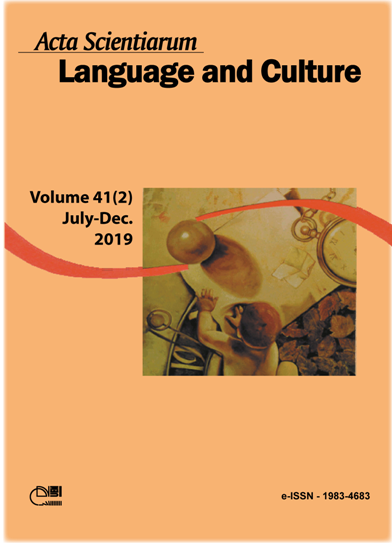A noção de dispêndio no contexto pós-colonial: uma análise de um conto de Ben Okri
Resumo
Este trabalho analisa o conto The dream-vendor's August, do escritor nigeriano Ben Okri, a partir de enfoques críticos que relacionam essa escrita pós-colonial às noções de dispêndio e de presente defendidas, respectivamente, por Georges Bataille (1997) e Jacques Derrida (1992). Trata-se de uma reflexão crítica em que se toma a ideia de perda como importante característica desse texto ficcional nigeriano, sobretudo no período entre o final dos anos 1980 e a década de 1990, momento retratado na narrativa de Okri. Entre os questionamentos levantados, encontra-se a possibilidade de que o contexto de uma grande cidade africana pós-colonial, como Lagos, implica processos de dispêndio e de presentear específicos, diferentes daqueles experimentados em metrópoles de países desenvolvidos. A questão cultural transforma ou até mesmo subverte, de alguma maneira, tais experiências. Dessa forma, investiga-se o deslocamento discursivo da narrativa pós-colonial de Okri a fim de discutir a realidade política, econômica e principalmente cultural da Nigéria nessa época. Em tal configuração, o dispêndio parece atingir praticamente todas as esferas da existência do sujeito pós-colonial retratado no conto. Porém, ao mesmo tempo, há mecanismos que interrompem a experiência da perda excessiva ou improdutiva em termos possivelmente diversos daqueles presentes em outras sociedades. Nesse sentido, a leitura da narrativa pós-colonial coloca novos problemas para a crítica literária ocidental.
Downloads
DECLARAÇÃO DE ORIGINALIDADE E DIREITOS AUTORAIS
Declaro que o presente artigo é original, não tendo sido submetido à publicação em qualquer outro periódico nacional ou internacional, quer seja em parte ou em sua totalidade.
Os direitos autorais pertencem exclusivamente aos autores. Os direitos de licenciamento utilizados pelo periódico é a licença Creative Commons Attribution 4.0 (CC BY 4.0): são permitidos o acompartilhamento (cópia e distribuição do material em qualqer meio ou formato) e adaptação (remix, transformação e criação de material a partir do conteúdo assim licenciado para quaisquer fins, inclusive comerciais.
Recomenda-se a leitura desse link para maiores informações sobre o tema: fornecimento de créditos e referências de forma correta, entre outros detalhes cruciais para uso adequado do material licenciado.




















6.png)









